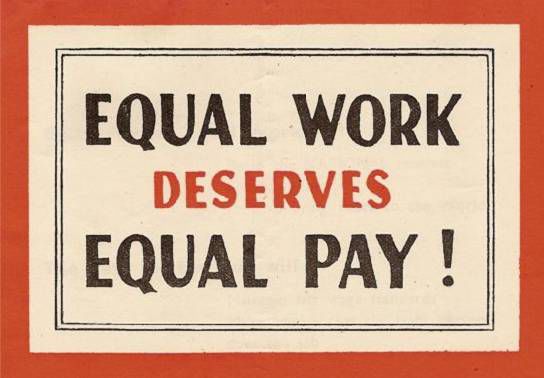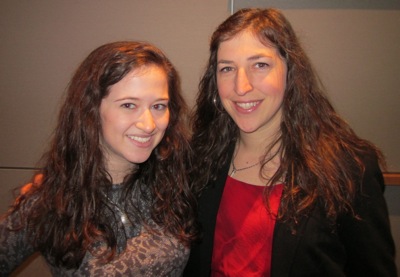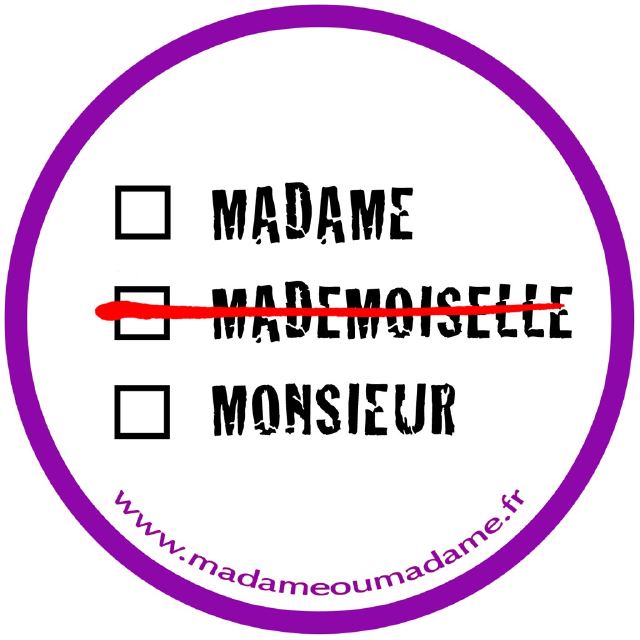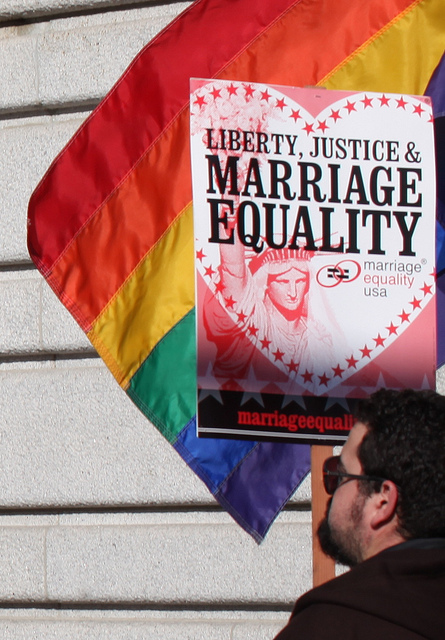Link Roundups
Link Roundups, The Lilith Blog
October 23, 2014 by Rebecca Halff
Beyond Pinktober
 The world (or in other words, journalists and the blogosphere) is officially disenchanted with Pinktober.
The world (or in other words, journalists and the blogosphere) is officially disenchanted with Pinktober.- No Comments
Link Roundups, The Lilith Blog
July 2, 2014 by Talia Lavin
Your Guide to the Hobby Lobby Case and Its Crushing Consequences

Thousands of women may now face restrictions on access to contraceptives. (Wikimedia Commons)
- 1 Comment
June 15, 2012 by Jill Finkelstein
Link Roundup: Jewish Women Fight Back
Welcome to this week’s installment of Lilith’s Link Roundup. Each week we post Jewish and feminist highlights from around the web. If there’s anything you want to be sure we know about, email us or leave a message in the comments section below.

http://www.flickr.com/thisisbossi
A Michigan state Rep was silenced after speaking out against an anti-abortion bill.
During a heated debate on the floor of the Michigan state House, Rep. Lisa Brown made an impassioned speech against a bill that seeks to put new regulations on abortion providers and ban all abortions after 20 weeks.
Brown, a Democrat, argued that her Jewish faith allowed for therapeutic abortions when the mother’s life is in danger without regard to length of pregnancy.
“I have not asked you to adopt and adhere to my religious beliefs. Why are you asking me to adopt yours?” she said. But what came next is what got her in trouble: “And finally, Mr. Speaker, I’m flattered that you’re all so interested in my vagina.
The Detroit News reports today the House Republican leadership did not allow Brown to speak on a bill about the retirement of school employees. [NPR]
In an editorial about the lack of Jewish organization run by women, CEOs Rabbi Jill Jacobs, Ruth Messinger, and Carole Zawatsky offered suggestions about how to increase female leadership in the Jewish community. Among the suggestions, which included encouraging search committees to consider female candidates and increasing the number of women on speaking panels, all three women stressed the importance of mentorship opportunities for women. [Washington Jewish Week]
- No Comments
May 29, 2012 by Jill Finkelstein
Link Roundup: Legislation Against Discrimination
Welcome to this week’s installment of Lilith’s Link Roundup. Each week we post Jewish and feminist highlights from around the web. If there’s anything you want to be sure we know about, email us or leave a message in the comments section below.
 Israel’s Supreme Court has ruled that employers who pay men and women different salaries must prove that wage gaps are unrelated to gender. Therefore, women will no longer have to bear the “burden of proof” that they were discriminated against on the basis of gender; they will simply have to show that there is a significant wage gap. The ruling was made in response to a lawsuit filed by Orit Goren, a hardware store employee, who was earning 35% less than her male co-worker. The employer attributed the wage gap to the fact that Goren had asked for a lower salary, however the Supreme Court ruled that that was not an adequate justification for the wage gap. [Haaretz]
Israel’s Supreme Court has ruled that employers who pay men and women different salaries must prove that wage gaps are unrelated to gender. Therefore, women will no longer have to bear the “burden of proof” that they were discriminated against on the basis of gender; they will simply have to show that there is a significant wage gap. The ruling was made in response to a lawsuit filed by Orit Goren, a hardware store employee, who was earning 35% less than her male co-worker. The employer attributed the wage gap to the fact that Goren had asked for a lower salary, however the Supreme Court ruled that that was not an adequate justification for the wage gap. [Haaretz]
And Israeli Knesset Members Dalia Itzik and Haim Katz have introduced a new bill that would extend the statute of limitations of suing an employer for gender wage discrimination from two years to seven years. [Haaretz]
Democratic members of the U.S. Senate also took steps to combat wage discrimination by reintroducing the Paycheck Fairness Act, which would close loopholes in the 1963 Equal Pay Act. The Paycheck Fairness Act was previously passed by the House of Representatives in January 2009, but lost by two votes in the in the Senate in November 2010. [The Baltimore Sun]
- No Comments
May 11, 2012 by Jill Finkelstein
Link Roundup: Same-Sex Marriage and Fighting the "War on Women"
Welcome to this week’s installment of Lilith’s Link Roundup. Each week we post Jewish and feminist highlights from around the web. If there’s anything you want to be sure we know about, email us or leave a message in the comments section below.

http://www.flickr.com/whitehouse
On Wednesday, President Obama made a historic endorsement of same-sex marriage. In an interview with ABC’s Robin Roberts, he stated, “At a certain point, I’ve just concluded that for me personally it is important for me to go ahead and affirm that I think same-sex couples should be able to get married.” [NY Times]
After three years of banning women from singing at events in South Africa’s Jewish community, most notably at Yom Ha’atzmaut (Israel Independence Day) and Yom HaShoa (Holocaust and Heroism Remembrance Day) events, a new organization called South African Centre for Religious Equality and Diversity’s (SACRED) has begun to fight back. This year, a compromise was made allowing women to sing at a Yom Ha’atzmaut celebration in Johannesburg, but only in a mixed choir, along with men. The organization released a video as part of their campaign to stop the discrimination. [Ha’aretz] & [Ha’aretz]
Lilith author Jennifer Rosner explained why she chose to communicate primarily with her deaf daughters in spoken language rather than sign language. [Motherlode]
Click HERE to read a fuller description of this mother’s parenting challenges and joys in Lilith’s current issue.
- No Comments
April 5, 2012 by Jill Finkelstein
Link Roundup:Adrienne Rich and the Bat Mitzvah at 90
Welcome to this week’s installment of Lilith’s Link Roundup. Each week we post Jewish and feminist highlights from around the web. If there’s anything you want to be sure we know about, email us or leave a message in the comments section below.
 Ground-breaking feminist poet Adrienne Rich died on March 27th at the age of 82. [NY Times]
Ground-breaking feminist poet Adrienne Rich died on March 27th at the age of 82. [NY Times]
Adrienne Rich’s poetry and activism changed the course of arts and letters. Here’s a look back at her original poem, Turning, from the 1989 Winter issue of Lilith.
In an effort to fight eating disorders, Israeli lawmakers passed a bill banning the use of underweight models in advertisements. In addition, “any advertisement published for the Israeli market must have a clearly written notice disclosing if its models were made to look thinner by digital manipulation.” Currently, about 2% of girls between the ages of 14 and 18 suffer from severe eating disorders in Israel. [AP via Huffington Post]
The Bat Mitzvah celebrated its 90th anniversary! On March 18, 1922, just two years after women got the right to vote, Rabbi Mordechai Kaplan’s daughter, Judith, became the first girl to have a Bat Mitzvah, though the ritual took a while to catch on. In honor  of the occasion, the National Museum of American Jewish History launched the traveling exhibit Bat Mitzvah Comes of Age (currently on display at the JCC Manhattan) and hosted a panel on the history of the Bat Mitzvah. Actress Mayim Bialik, the keynote speaker, spoke about her own Bat Mitzvah experience and how it inspired her to delve deeper into her Jewish studies. [Philadelphia Inquirer]
of the occasion, the National Museum of American Jewish History launched the traveling exhibit Bat Mitzvah Comes of Age (currently on display at the JCC Manhattan) and hosted a panel on the history of the Bat Mitzvah. Actress Mayim Bialik, the keynote speaker, spoke about her own Bat Mitzvah experience and how it inspired her to delve deeper into her Jewish studies. [Philadelphia Inquirer]
- No Comments
March 13, 2012 by Jill Finkelstein
Link Roundup: Purim and International Women’s Day
Welcome to this week’s installment of Lilith’s Link Roundup. Each week we post Jewish and feminist highlights from around the web. If there’s anything you want to be sure we know about, email us or leave a message in the comments section below.
 This year, Purim fell on International Women’s Day. Melissa Scholten-Gutierrez of Redefining Rebbetzin explained the significance of the two holidays coinciding, stating, “[Purim] is the very essence of what International Women’s Day is all about. Celebrating women who do what needs to be done, even when it isn’t easy.” [Jewesses with Attitude]
This year, Purim fell on International Women’s Day. Melissa Scholten-Gutierrez of Redefining Rebbetzin explained the significance of the two holidays coinciding, stating, “[Purim] is the very essence of what International Women’s Day is all about. Celebrating women who do what needs to be done, even when it isn’t easy.” [Jewesses with Attitude]
In honor of Purim, songwriter Alicia Jo Rabins examined Queens Esther and Vashti as well as the other heroines of the Bible. [Huffington Post]
Controversial radio host Rush Limbaugh came under fire after attacking Sandra Fluke, the Georgetown University law student who was not allowed to testify at a congressional hearing on contraception coverage, on his radio show. Despite apologizing, at least 50 companies have pulled advertisements from Limbaugh’s program. [The Sisterhood] & [Think Progress]
Last Thursday, the Blunt Amendment failed by 3 votes in the U.S. Senate. The Amendment would have allowed “employers to deny their employees insurance coverage for anything they objected to on religious grounds.” [Salon]
- No Comments
February 26, 2012 by Jill Finkelstein
Link Roundup: French Linguistics and Feminist Oscar Films
Welcome to this week’s installment of Lilith’s Link Roundup. Each week we post Jewish and feminist highlights from around the web. If there’s anything you want to be sure we know about, email us or leave a message in the comments section below.

http://madameoumadame.fr/
After several months of pressure from the feminist organizations Osez le Féminisme and Les Chiennes de Garde, the French government announced that it would no longer use the term “mademoiselle” (the French equivalent of “miss”) on official government documents. Until now, women in France have had to identify their marital status by selecting the title of “madame” (the French equivalent of “Mrs.”) or “mademoiselle” on administrative documents, whereas men have always been called “monsieur” regardless of their martial status. [NY Times]
Friday, February 24th marked the centennial anniversary of the founding of Hadassah. A Shabbat service and ceremony was held at Temple Emanu-El in New York City, where Henrietta Szold formed the organization 100 years ago. [NY Jewish Week]
Last week, U.S. Representative and House Oversight Committee Chairman Darrell Issa came under fire for assembling an all-male panel to testify at a Congressional hearing on birth control and religion. Issa denied a request made by Democrats to include Georgetown University law student Sandra Fluke on the panel, stating that she was “unqualified.” Saturday Night Live even criticized congress for excluding women from the hearing (and Virginia’s transvaginal ultrasound debate) in a segment called “Really!?! With Seth and Amy.” [Jezebel] & [Jezebel]
- No Comments
February 12, 2012 by Jill Finkelstein
Link Roundup: Prop 8 and the Contraception Compromise
Welcome to this week’s installment of Lilith’s Link Roundup. Each week we post Jewish and feminist highlights from around the web. If there’s anything you want to be sure we know about, email us or leave a message in the comments section below.

http://www.flickr.com/gazeronly
On Tuesday, the U.S. 9th Circuit Court of Appeals declared Proposition 8, California’s law banning same-sex marriage, unconstitutional. The ban will unfortunately remain in effect due to pending appeals. [San Francisco Chronicle]
On Friday, President Obama announced that religiously affiliated institutions would no longer be required to provide contraception coverage in their employer-sponsored insurance plans. Instead, insurance companies will be required to provide women with additional contraception coverage at no additional cost to their premium. [Washington Post]
Due to the recent attacks on women in Israel, the U.S. State Department is now advising American tourists to dress modestly when visiting Old City Jerusalem and ultra-Orthodox neighborhoods. [Huffington Post]
The Women’s International Zionist Organization (WIZO) has called for a boycott on stores selling “sexy” Purim costumes after Israeli retailer Shoshi Zohar featured “near-pornographic” costumes for women in its latest catalog. Concerned about the message that the costumes send, WIZO chairwoman Gila Oshrat stated, “This should not be the way we educate our children. These kinds of sexist ads increase attacks against women and portray us as cheap.” [The Shmooze]
- No Comments
February 3, 2012 by Jill Finkelstein
Link Roundup: The Susan G Komen Backlash and Workplace Discrimination
Welcome to this week’s installment of Lilith’s Link Roundup. Each week we post Jewish and feminist highlights from around the web. If there’s anything you want to be sure we know about, email us or leave a message in the comments section below.

http://www.flickr.com/branditressler
On Tuesday, Susan G. Komen for the Cure announced that it would no longer be funding Planned Parenthood’s breast cancer screening program due to its new policy that blocks organizations under investigation from receiving grants. Though Susan G. Komen denied that its decision was motivated by a secret political agenda, critics pointed out that the new policy was enacted just a few months after U.S. Rep. Cliff Stearns launched an investigation to determine whether or not Planned Parenthood had used government funds to pay for abortions. In addition, Susan G. Komen’s newly appointed Senior VP for Public Policy Karen Handel is anti-choice and vowed during her run for Governor that she would eliminate funding to Planned Parenthood for breast and cervical cancer screenings. Despite whether or not Komen’s new policy was a cover-up for political motivations, the organization faced a major backlash and announced on Friday that it would be reversing its decision. [The Atlantic]
A new study reported that while women make up 68% of the voluntary sector’s workforce in the U.K., only 43% of the country’s charities are lead by women. In addition, the study found that women are grossly under-represented in the religious sector, as only 15% of religious organizations have female leaders. [eJewish Philanthropy]
- 1 Comment
 Please wait...
Please wait...